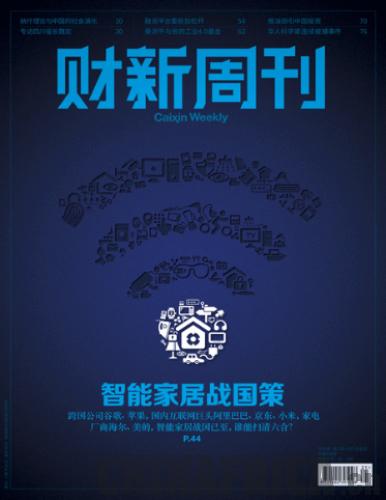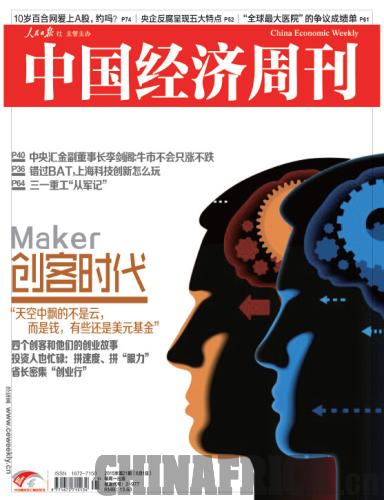| 
SMART HOME APPLIANCES
Caixin
June 1
One day in the future, when you walk into your home, the lights will turn on, the curtains will draw apart and the air conditioner will switch on – all of this automatically. When you leave, the reverse will happen. Imagine your refrigerator giving you its food inventory, complete with the expiry dates, reminding you to buy fresh food, and even buying food items online itself.
With the Internet of Things - a scenario in which objects have embedded sensors and are able to communicate - all of this is happening. Home appliances are getting connected and becoming smarter. Sensing the potential, a number of home appliance manufacturers and Internet companies are either eyeing or have already stepped into the sector.
Lei Jun, CEO and co-founder of Chinese electronic company Xiaomi, said in March that intelligent appliances have presented China with opportunities not to be missed. With its huge market and highly developed industrial chain, China has the potential to become a smart product manufacturing hub.
But although China has well-established home appliance manufacturers, insiders warn it is not possible to make a quick buck in this sector. The companies should first find the best way to integrate intelligent technology with products and develop a sustainable commercial model.

BEHIND DIVORCE
China Newsweek
June 8
China's post-80s generation forms the bulk of the nation's divorcing population. According to the Ministry of Civil Affairs, 3.5 million couples got divorced in 2013, a year-on-year increase of 12.8 percent.
China Newsweek looks at the reasons behind this phenomenon. After China introduced the family planning policy around the 1980s, most people of this generation were the only child in their family. They put greater value on self-esteem and self-dependence. They are also self-centered and reluctant to yield during marital disagreements.
Another reason is that this generation lack emotional maturity and knowledge about what makes marriages tick. Many get married in haste only to find that their spouse is not Mr. or Miss Right. In addition, parental interference in young couples' married lives intensifies disputes and causes the relationship to deteriorate. However, a higher divorce rate also reflects that people have more freedom of choice.

MAKERS' ERA
China Economic Weekly
June 1
China's flourishing business environment is inspiring thousands of young Chinese innovators to start their own businesses. Those who are enthusiastic about turning innovative ideas into real products with the help of new technology are called "makers". After being a frequent word in Premier Li Keqiang's report on the work of the government, makers have obtained supportive state policies - for funding, tax cuts, and low-cost services - to get their projects off the ground.
Venture capital firms, too, see a bright future for innovative startups and are busy with negotiating cooperation with the makers. However, despite the fervor and support, many startups have failed. About 72 percent of makers' businesses came to naught in three years, according to the magazine.
Familiarity with the industry and competence to execute projects are vital to success. Makers who can withstand tests will invigorate the industry, even reform it, and will realize sustainable growth driven by innovation.
NOBODY'S CHILDREN
Xinhua Daily Telegraph
June 16
With China's rapid urbanization, there are now over 60 million left-behind children in its rural areas – youngsters whose parents have gone to the cities or abroad for work, leaving them in the care of relatives. Lack of guardianship and parental care makes them physically and psychologically vulnerable and has triggered malnutrition and a high crime rate. These children get to see their parents only a few times in a year, sometimes just once in several years.
Parents and the families bear the primary responsibility to prevent this. As guardians, they are obliged to provide care and emotional support, not just the basic living necessities. Statistics show that the majority of left-behind children are between one to eight years old, the age group that needs care and guidance most.
There should be more measures to help and protect left-behind children. For example, legislation can be made to require parents to accompany their children. Nonprofit organizations can also participate by offering psychological consultations for left-behind children in rural schools. |